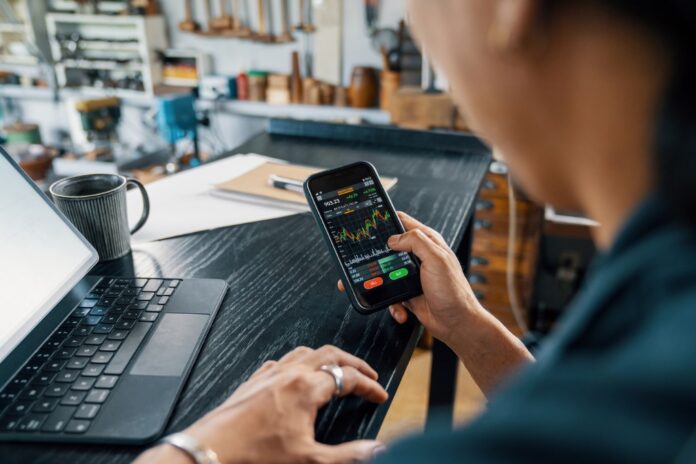
Foreign exchange trading stands as a pivotal pillar of financial stability. Its significance stems from its capacity to empower both individuals and institutions to engage in the vibrant fluctuations of foreign exchange markets, potentially yielding significant profits. At the core of market participation are accounts facilitating currency transactions.
Forex trading accounts are a channel for individuals and legal entities to participate in the foreign exchange market. They are specifically designed to facilitate the purchase and sale of currencies, allowing traders to benefit from market fluctuations and gains from currency movements.
Definition and Purpose
The main objective of these accounts is to provide individuals and institutions with access to global currency markets and to participate in currency-related activities. Whether for speculation, hedging, or investment purposes, they allow traders to benefit from currency movements and potential profits.
Registering entails signing up with a respected currency broker or financial institution. Traders have the option to select from various types, tailored to their preferences, risk tolerance, and investment objectives.
After opening a Forex account, traders must finance it with sufficient capital to start deals. Financing methods vary and may include bank transfers, credit/debit card payments, e-wallets or other online payment systems.
Functionality

Forex accounts offer features that allow traders to conduct transactions efficiently. Understanding these functions is important for maximizing opportunities and effectively managing risk.
- Trading currency pairs is a primary function, enabling traders to engage in buying or selling activities involving various currency pairs like EUR/USD, GBP/JPY, or USD/JPY. Different forex account types may provide access to distinct sets of currency pairs, underscoring the significance for traders to select the most suitable variant aligning with their trading preferences.
- Forex accounts give traders access to trading platforms, which are software interfaces that allow users to place transactions, analyze market data, and manage their accounts.
- Leverage plays a key role, allowing traders to manage larger positions with less initial investment. Different account types offer different leverage levels, with some brokers providing leverage up to 500: 1 or even higher. While leverage can increase potential profits, it also increases loss risk.
- Market orders are executed at the current market price, while limit orders allow traders to specify the price at which they want to enter or exit the transaction.
Types of Forex Accounts

Understanding the characteristics of each account type is important for choosing the best Forex account type that corresponds to individual trading goals and levels of experience.
- Standard account requires a higher minimum deposit but provides access to extensive trading opportunities and a broad selection of currency pairs. Designed for experienced traders comfortable with larger positions and possessing a higher risk tolerance, the standard account offers comprehensive trading capabilities.
- Mini Forex account is designed for traders with less capital. Mini accounts typically have lower minimum deposit requirements and smaller contract sizes, allowing traders to trade with smaller shares. This type of account is often considered the best type of Forex account for beginners or those who want to trade with limited risk.
- Managed account allows you to delegate trading solutions to professional managers or trading consultants. Investors deposit funds into a managed account and the appointed manager makes transactions on their behalf. The manager charges a performance-based fee for this. Managed accounts are suitable for investors who prefer not to interfere in trade.
- Islamic Forex account, also known as a non-swap account, adheres to Islamic financial principles that prohibit the payment or receipt of interest (riba). In Islamic accounts, overnight positions are not subject to interest refund, making them suitable for traders who follow Islamic law. Islamic accounts are available to traders of all levels of experience who require compliance with sharia law.
- Demo account allows traders to get acquainted with the platform without risking real money. These accounts usually come with virtual tools that simulate real-market trading conditions. They are especially useful for beginners to get practical experience before switching to live trading.
By understanding different types of accounts on the Forex market, traders can make informed decisions to maximize their potential.
Pros and Cons

Liquidity ensures traders can swiftly enter and exit positions without significantly impacting prices, offering opportunities for seamless trading experiences.
- Accessibility allows traders from different time zones to seize market opportunities as they arise, facilitating round-the-clock trading activities.
- Leverage enables traders to control larger positions with relatively small capital. While leveraging can amplify both profits and losses, it offers opportunities for skilled traders to increase profits, albeit with heightened risk.
- Access to a wide array of currency pairs enables traders to diversify their portfolios and capitalize on various market conditions, enhancing flexibility and potential returns.
- Flexibility in choosing account types that match preferences, risk tolerance and investment objectives, allowing them to adapt their trading experience.
However, there are also drawbacks to consider:
- High volatility. While volatility presents profit opportunities, it also heightens the risk of substantial losses, requiring traders to implement effective risk management strategies.
- Counterparty risk. There is a risk of default or insolvency by counterparties, potentially resulting in fund loss or trade disruption, underscoring the importance of due diligence in selecting trading partners.
- Complexity. Understanding market dynamics, technical analysis, and underlying factors requires continuous learning and effort, posing challenges for traders seeking to navigate the forex market successfully.
- Market manipulation. The decentralized nature of the Forex market exposes it to manipulation by large institutional players or market participants with significant capital, necessitating vigilance and caution on the part of traders.

Forex accounts are important instruments for the access of traders to dynamic currency markets. Understanding its functionality of it is crucial for successful forex market management and maximizing opportunities.
Thus, forex trading offers people the opportunity to participate in large global currency markets. With a deep understanding of the features of Forex accounts, ownership of the fundamental trading principles, as well as a well-thought choice of broker, traders can safely start their trade. With the necessary knowledge and tools, they can successfully maneuver the world of the Forex market, creating favorable conditions for themselves to succeed.
When choosing a forex broker, traders must take into account several factors to ensure they opt for a trustworthy and reliable service provider that meets their trading requirements and preferences. These considerations encompass regulatory compliance, trading expenses, customer service quality, available trading platforms, asset selection, and overall reputation. Through thorough assessment of these aspects, traders can confidently select a forex broker that offers the essential tools and assistance to enhance their trading experience and journey.








